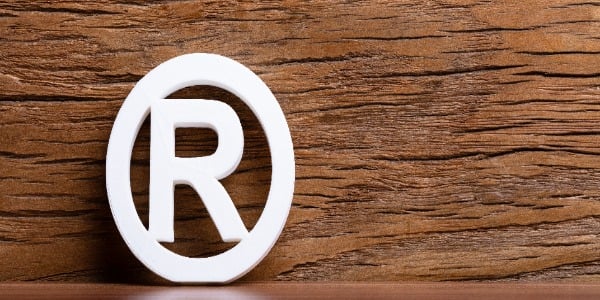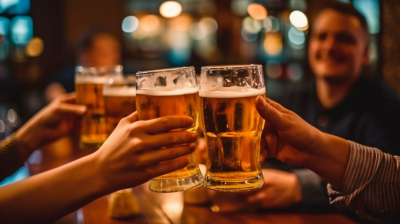Rockaway Drinks LLC sought to secure a trademark registration for their line of non-alcoholic sparkling water-based beverages, using the mark "ROCKAWAY." However, their application faced a roadblock when the Trademark Examining Attorney invoked Section 2(d) of the Trademark Act to refuse registration.
The refusal was justified based on the similarity between Rockaway Drinks LLC's proposed mark "ROCKAWAY" and the already registered mark "ROCKAWAY BREWING COMPANY," which is used specifically for beer. It was deemed that the similarity between these two marks could potentially cause confusion among consumers.
Rockaway Drinks LLC filed an appeal for reconsideration with the Trademark Trial and Appeal Board which was ultimately denied. Here we will delve into the details of their appeal, exploring the legal grounds, arguments, and evidence presented by Rockaway Drinks LLC, as well as the decision rendered by the Appeal Board.
Analyzing the DuPont Factors
Trademark Act Section 2(d) serves to protect the interests of trademark registrants by aiming to prevent confusion and potential harm from the presence of similar marks in the marketplace. The determination of likelihood of confusion is guided by the DuPont factors, which are assessed based on the evidence presented in each case assigned varying weights within a comprehensive analysis.
The First DuPont Factor: Similarity of Marks
The first DuPont factor focuses on the examination of similarities or dissimilarities in appearance, sound, connotation, and overall commercial impression of the marks. Rather than a strict side-by-side comparison, the emphasis is placed on whether the marks create a similar commercial impression when viewed in their entirety.
The Examining Attorney argued that the applicant's mark, "ROCKAWAY," bore similarity to the registrant's mark, "ROCKAWAY BREWING COMPANY." The disclaimer of the "BREWING COMPANY" element in the registration diminishes its significance when assessing and comparing marks, as disclaimed and descriptive matter is generally considered less important.
The Examining Attorney concluded that since the primary element of the registrant's mark is "ROCKAWAY," which is identical to the entire applicant's mark, the overall commercial impression of both marks is essentially the same. It is therefore likely that consumers will associate the "ROCKAWAY" portion of the mark as the indicator of the source of the goods, rather than the non-source identifying element “BREWING COMPANY.” Considering that consumers tend to shorten brands or marks, the term "ROCKAWAY" could be perceived as a shortened version of the full mark "ROCKAWAY BREWING COMPANY" when used on related products.
In defense, Rockaway argued that the mark "ROCKAWAY BREWING COMPANY" is weak and should be entitled to narrow protection due to its descriptive nature and registration on the Supplemental Register. However, even weak marks are afforded protection against substantially similar marks used on related goods.
Taking into account that the mark in question is registered on the Supplemental Register, the first DuPont factor supports a finding of a likelihood of confusion.
The Second and Third DuPont Factors: Similarity of the Goods and Trade Channels
The second and third DuPont factors relate to the similarity or dissimilarity and nature of the goods described in an application or registration and their established, likely-to-continue trade channels. Likelihood of confusion does not require the goods to be identical or competitive, but rather whether they could give rise to the belief that they come from the same source.
The Examining Attorney pointed out that both Registrant's "beer" and Applicant's "non-alcoholic water-based beverages" are sold under the same brand name, in the same trade channels, and to the same class of consumers.
Third party evidence was provided showing that both goods are sold alongside each other in various platforms such as brick and mortar stores, bars, restaurants, and online retailers. As such, the similarity in marks between the two products would lead consumers to assume that they come from the same or a related source.
The Examining Attorney further pointed out that breweries and beer producers often sell non-alcoholic beverages like root beer, soda, soft drinks, hard cider, or hard seltzers in addition to beer. However, Rockaway argued that their goods do not include any of those products and disagreed with the characterization of their goods as “non-alcoholic water beverages.” According to them, their goods are “Non-alcoholic sparkling water-based beverages, namely, functional beverages containing herbal extracts, plant infusions, and fruit.”
The Examining Attorney disagreed, arguing that the amendment by the Applicant to specify the nature of their beverages was not enough to differentiate them from the goods of the Registrant. Internet evidence from Wikipedia and various food blogs and industry websites indicate that there is no clear definition of a “functional beverage,” and that there is overlap between beers and non-alcoholic water-based beverages.
In response, Rockaway argued that “[B]eing flavored with the same added ingredients does not mean that consumers are at risk of confusing these goods.” Citing In re Cent. Soya Co., 220 U.S.P.Q. at 916, they contend that “Something more” must be shown to establish likelihood of confusion, and that the Examining Attorney has not demonstrated that “something more.”
However, consumers confusing the beverages is not the main concern, but rather confusion about the source of the beverages. The argument that a "something more" is needed to establish the relationship between food products and restaurant services is not applicable in this case, as that requirement is only for situations where the relationship is not evident, well-known, or generally recognized. In this case, there is no need for such additional evidence, as it is clear from the record that the same entities provide both beers and non-alcoholic water-based beverages, including sparkling or carbonated ones.
In short, the characterization of the "non-alcoholic sparkling water-based beverages" as “functional beverages” with health benefits does not prevent a finding of relatedness or confusion about the source. Broad registration descriptions encompass all goods of the described type, including beers with herbal extracts and fruit. As the goods of the Applicant and Registrant are related and contain no limitations on channels of trade or classes of purchasers, they are presumed to move in all channels of trade normal for such goods and to be available for all types of consumers, including health-conscious consumers who can expect to find beers or sparkling beverages with herbal and fruit infusions.
In consideration of the evidence presented, the second and third DuPont factors were found to demonstrate likelihood of confusion.
Final Ruling
After considering the evidence and arguments, the Trademark Trial and Appeal Board determined that the applicant's mark "ROCKAWAY" for non-alcoholic sparkling water-based beverages is likely to cause confusion with the registrant's mark "ROCKAWAY BREWING COMPANY" for beer and malt-based alcoholic beverages.
Accordingly, the refusal to register the applicant's mark under Section 2(d) of the Trademark Act was upheld.





